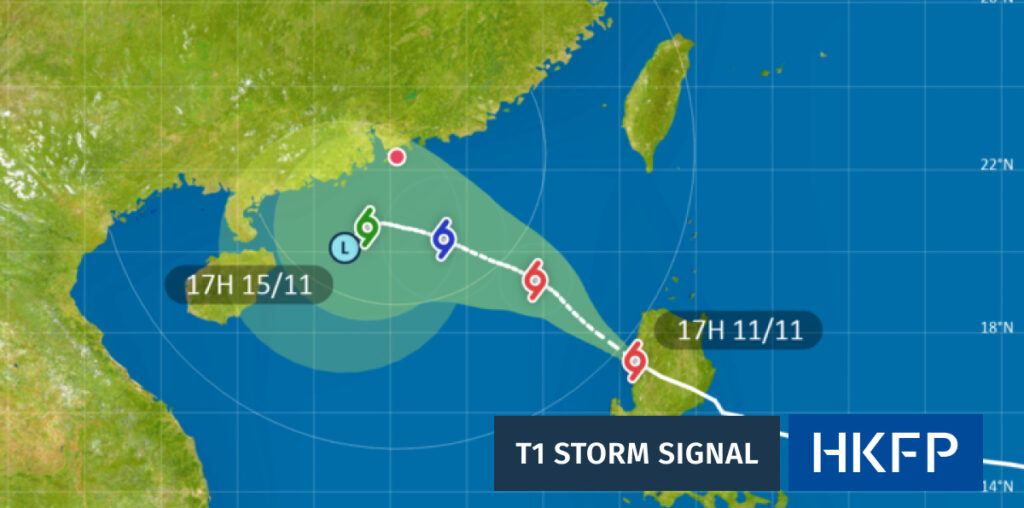Hong Kong has issued its T1 storm warning as Tropical Cyclone Toraji came within 800 kilometres of the city.

The Standby Signal No. 1 was raised at 10.20 pm on Monday, a day after it was cancelled as Tropical Cyclone Yinxing moved away from the coast of southern China.
“Under the combined effect of Toraji and the northeast monsoon, winds over the region will gradually strengthen with squally showers,” the Hong Kong Observatory forecast on Monday evening.
The Observatory said it would consider raising a higher T3 typhoon signal later on Tuesday or early on Wednesday depending on the storm’s progress.
“Toraji may be relatively close to the vicinity of the Pearl River Estuary on Thursday… but may also weaken at the same time,” the government forecaster said. “Whether a higher Tropical Cyclone Warning Signal will be issued depends on the distance between Toraji and the Pearl River Estuary, it’s intensity and the change in local wind conditions.”


Rain and wind were expected to continue into the weekend with a brief bright spell on Saturday before more rain next week, according to the Observatory’s forecast.
Typhoon Signal 1
The No.1 signal is the “Standby” signal. It is issued when a tropical cyclone is centred within about 800 kilometres of Hong Kong and may affect the territory.
- All schools and government services remain open.
- All public transport remains in service.
- The government advice is to take the tropical cyclone into account when planning activities and be wary of potential strong winds over offshore waters.
Climate crisis
Tropical cyclones – which get their energy from warm ocean water – are strengthening and become ever more destructive because of warming seas. Over 90 per cent of excess heat in the atmosphere is ending up in oceans, according to NASA, as rising greenhouse gases prevent it from escaping to space.
The European Union’s Copernicus Climate Change Service last week said that 2024 was “virtually certain” to be the warmest year ever recorded.
“After 10 months of 2024 it is now virtually certain that 2024 will be the warmest year on record and the first year of more than 1.5 degrees Celsius above pre-industrial levels,” Samantha Burgess, deputy director of the Copernicus Climate Change Service, said according to Earth.org.
Support HKFP | Policies & Ethics | Error/typo? | Contact Us | Newsletter | Transparency & Annual Report | Apps
Help safeguard press freedom & keep HKFP free for all readers by supporting our team


Source link

